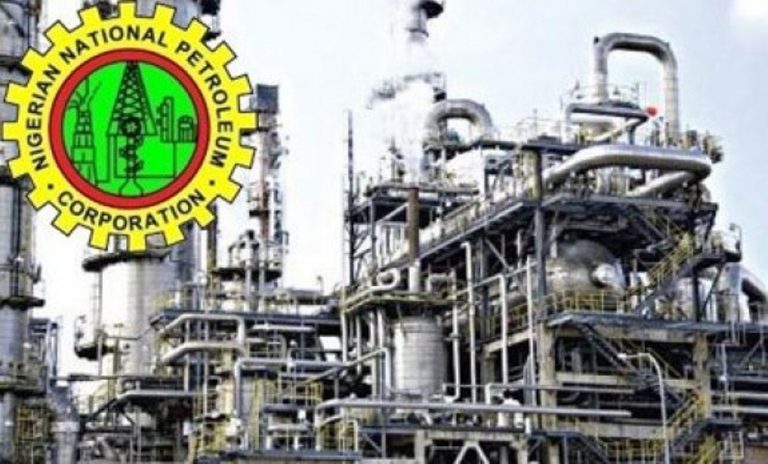Nigeria now depends 100% on crude swap + why no refinery functional in Nigeria at the moment, NNPC GMD opens up
Group Managing Director (GMD) of the Nigerian National Petroleum Company (NNPC) Ltd, Mele Kyari, has said that no single litre of product is being produced from Nigerian refineries as no single refinery working at the moment in the country.
Platforms Africa reports that Nigeria has four refineries with 445, 000 barrels daily cumulative capacity.
Kyari disclosed the status of the refineries when he appeared before the House of Reps joint Committee on Petroleum Resources (Downstream) on Tuesday in Abuja.
READ ALSO:
Meet Abdul Tareeq, 14 Yr-Old Winner of NNPC Zonal Science Competition
Buhari, NNPC CEO Showcase Oil, Gas Investment Opportunities in Spain
Why Queues Resurfaced In Abuja – NNPC
Petroleum Varsity Gets ICT Centre Donation from NNPC, SNEPCo
The committee is investigating the increased in prices of diesel and cooking gas.
Kyari said that the country’s refineries were not working at the moment, adding that the situation was regrettable but the NNPC was doing something to bring the refineries back to work.
With this, Platforms Africa reports, Nigeria depends 100 per cent on direct sale Direct purchase (DSDP) otherwise called crude swap for its 445,000 barrels daily allocation for local refining.
According to Kyari, “the refineries will not come back tomorrow, there is a process going on. We have decided to do a quick fix for Warri refinery.”
He said that no one could guarantee the security of petroleum supply, adding that countries were preserving excess volume that they had in their kitty.
“The world has never seen this kind of uncertainty, today countries are stockpiling products. Shortly before COVID-19, the world was already facing shortfall of 3 million barrel of supply of oil,” he said.
He said that there had been no control to manage the energy crisis across the world, stressing that ” to guarantee energy security means you just make product available at anytime and by any cost.”
The GMD also disclosed that over 200 illegal refineries were being operated across the country.
He said that the solution was to restore crude oil production, adding that there was a massive intervention that was ongoing and by the end of July “we will restore production to a level that is reasonable.
“Many European countries are asking for rationing gas, they are asking people to alternate their Air Conditioning.
“Today, countries are toying with subsidy because prices are so high because they don’t think they can manage inflation associated with it.”
Mr Farouk Ahmed, the Chief Executive Officer of the Nigerian Midstream and Downstream Petroleum, said that the current geopolitical crisis in Ukraine and Russia had resulted in the increase of petroleum product.
He added that this was because Russia was one of the major producer, adding that the war had affected petroleum products and it also affected all nations across the world and Nigeria was not an exemption.
He said that the landing cost of petroleum product was also a factor, adding that the high cost was not limited to Nigeria.
“We need to see what can be done to alleviate the suffering of the people. If our refineries are back on stream and make foreign exchange available at the official rate of N400 per dollar.
“And if our refineries come back we can then get a reprieve. We also need to address the issue of vandalism.
Abdullahi Gaya, Chairman, House Committee on Downstream, noted that Nigeria had refining capacity but because none were functioning which led the country to her sorry state.
He said that there was need to find solution to the high cost of diesel and cooking gas in a bid to cushion the effect on the generality of Nigerians.
Some of the lawmakers who spoke, however, said that Kyari and Ahmed expressed helpless situation.
“You have just presented a hopeless situation, you have the responsibility to proffer solution. If there is no solution then why are we here?
The lawmakers said that they were particularly concerned about the plight of Nigerians, as many of them collect a minimum wage of N30,000.
They noted that Nigeria may have to go the way of other nations by subsidising cooking gas.





